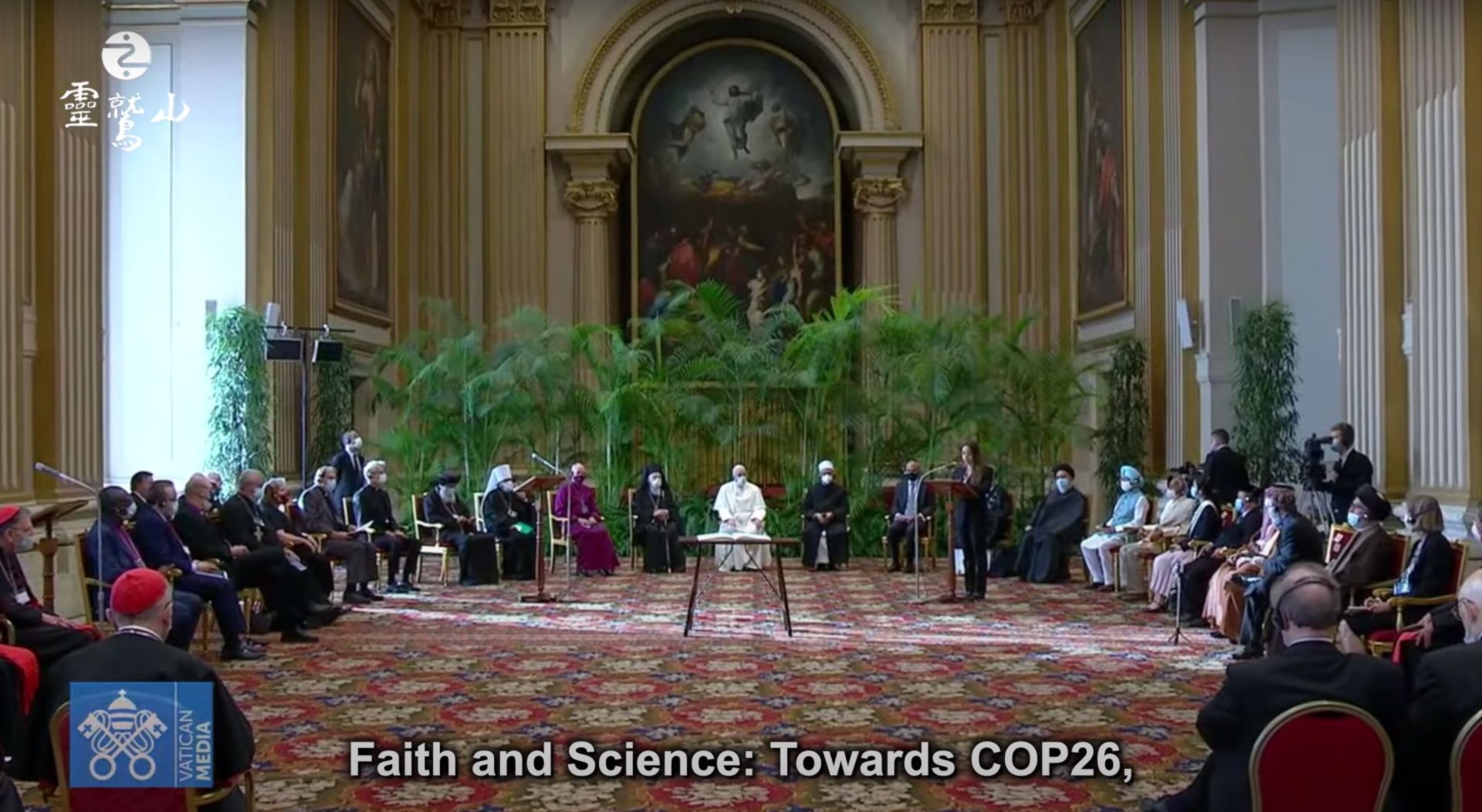.jpg)


Promoting Life Education,
Co-creating a Global Family for Love and Peace
Respecting the intrinsic value of all species
Accommodating shared spaces for survival
Sharing the collective fruits of life
At present, the world is facing multiple and unprecedented challenges, including emerging pandemics, wars, ethnic conflicts, and extreme climate change. Human society and the Earth's ecosystems are under severe threat. These crises not only endanger the continuity of human civilization but also inflict irreversible damage on the future of the planet. At this critical juncture, Dharma Master Hsin Tao extends the ideals of “Loving Earth, Loving Peace,” which he advocated during the founding of the Museum of World Religions, by proposing the concept of Spiritual Ecology. Rooted in the understanding that all beings form an interdependent community of life, this philosophy emphasizes respecting the intrinsic value of all species, accommodating shared spaces for survival, and sharing the collective fruits of life. It highlights the inseparable relationship between spirituality and ecology.
Spiritual awakening is a profound inner transformation that begins with conceptual grounding and the awareness of interconnection between self and environment. Through practices such as meditation and mindfulness, individuals engage in initial spiritual experiences, deepening self-awareness and understanding of life.
As spiritual understanding expands, it becomes integrated into everyday life. Through sustained practice and workshops, students develop sensitivity to relational dynamics and cultivate critical thinking in relation to the self and the world.
Ultimately, spiritual awakening evolves into an advanced, interdisciplinary practice, integrating ecology and technology. This fosters holistic transformation and offers actionable pathways for addressing contemporary ecological and ethical challenges.
Ecological education emphasizes beginning with self-awareness. Through environmental observation, mindfulness, and reflection, students develop ecological sensitivity and empathy, gradually establishing ethical relationships with the natural world.
With advanced coursework in climate change, resource management, and sustainable economies, students acquire systemic thinking that bridges disciplinary knowledge, enabling them to understand the complex interactions between society and nature and cultivate global sustainability competencies.
The curriculum emphasizes the application of knowledge through fieldwork, community projects, and technological ethics, equipping students with the creativity and agency to respond to ecological challenges and lead responsibility-driven sustainable transitions.
Focusing on environmental awareness, this course integrates topics such as ecological conservation, renewable energy, and food security. Students explore the symbiotic relationship between nature and technology through spiritual ecology, carbon management, and smart agriculture, promoting context-responsive decarbonization and restoration initiatives.
Building on this foundation, the course emphasizes social innovation and inclusive urban development. Students engage in sustainable solutions related to the sharing economy, green mobility, and cultural revitalization, advancing community participation and environmental justice.
Integrating knowledge from technology, law, psychology, and spirituality, the course fosters ethical judgment and practical action in response to future socio-ecological challenges. It cultivates a forward-looking, integrative sustainability mindset grounded in spiritual and philosophical reflection.




